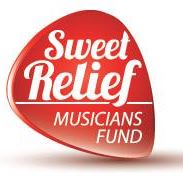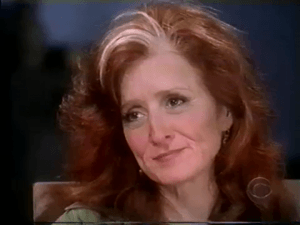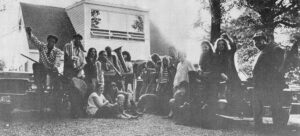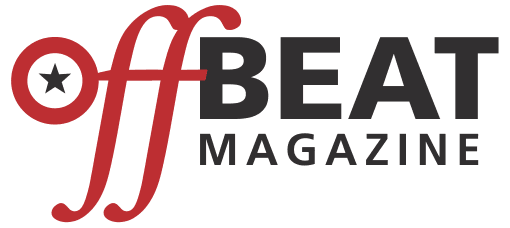
Bonnie Raitt scooped up her tenth overall career Grammy award, for best Americana album, with 2012’s Slipstream, her first studio release since 2005. Celebrated by critics as one of the finest in her 40-year career, the project followed a tough string of personal losses: Both of Raitt’s parents passed away in 2004 and 2005, followed by her older brother in 2009. Energized by the two-year Slipstream tour and the album’s overall success, the veteran guitar slinger emerged from the studio in February of 2016 with her latest, Dig In Deep, a triumph of rock-and-soul energy and heart-cracking intimacy that includes five original compositions, including a co-write with her longtime running buddy Jon Cleary. Raitt got on the phone with OffBeat in advance of her November 5 show at the Saenger Theatre in New Orleans.
You’ve been coming to New Orleans for a long time. A few years ago—introducing you at Jazz Fest—Quint Davis pointed out that you were the first non-Louisianan to play the festival.
I’ve been touring nationally since ’74, so we hit pretty much all the big cities, including New Orleans, but the Festival started right around that time, and then it became wonderful to be able to play this great new thing that Quint and all the people in New Orleans had come up with. It was thrilling to be able to celebrate the Meters and the Nevilles and Allen Toussaint, and get to meet and hang out with so many great musicians all at one time.
And over the years, you’ve worked with a lot of New Orleans musicians and had the chance to spend some time and really dig into the city and its culture, too.
Absolutely. I’ve been playing there since the ’70s, and I was very good friends with Allen Toussaint. My ‘in’ with the city was through his eyes, and Marshall Sehorn, his musical partner that ran his company. They hosted me for a week years ago, and I was on Warner Brothers with both the Meters and Allen Toussaint, and then sang on Allen’s records, and recorded a couple of his songs. Then, in the early ’80s, Ivan Neville was in my band, so after already knowing the Neville Brothers, I knew them really well once Ivan was in the band. We got to see New Orleans through that. Then my friendship with the Radiators, and John Mooney, and a lot of different other local artists—and then Jon Cleary I met when he played with Taj Mahal on a recording session, and when I needed to switch keyboard players, he was available, and was interested in working with me, so we had 10 years of him being in the band.
What are some of your favorite New Orleans memories?
Well, it’s a toss-up between the music and the food, I suppose. The atmosphere and the culture—knowing about the history of New Orleans music, and all the different tributaries of ethnicities and historical backgrounds, I was always fascinated with New Orleans music, since I started out as a kid. Ernie K-Doe and Fats Domino were some of my favorite records of all time. I got to hang out in the club scene, and go to Tipitina’s and Jimmy’s, and got to go to a lot of different neighborhoods for soul food, New Orleans home cooking. Not as much the Antoine’s or Brennan’s side but the neighborhood side, which is the wonderful thing about having friends that are actually living in New Orleans, because they can take you around to their special favorite places.
Years later, Jon invited me to come in and hang out and go to Indian practice. I came in before Mardi Gras, and I learned some more aspects of the preparation and the history of everything—what the second line means, and everything about the history of Mardi Gras and all that. I got to see an insider view that a lot of the public, I don’t think, gets access to, so I felt really blessed to be able to see the historic side of New Orleans, as well as celebrate the living culture … the living and breathing interaction of all the different musical influences, and culinary influences.
I remember that when we spoke a few years ago, right after your 2012 album Slipstream, we talked about the challenge of wading through the sheer volume of music being released these days and finding things you like. You said then that you were about to go on the “song hunt,” for your next project.
Exactly, that’s pretty much what I’ve been doing since the first record. I love looking under lots of different rocks for music that’s not necessarily above the radar. It’s daunting, but it’s also fun. It’s like a treasure hunt. The volume is daunting, but the discovery when you find something—through either a journalist friend or another artist or just in the circles that I move in, or sometimes just going to YouTube and following a tributary of that… all different corners of the earth, really. I have friends in so many places that turn me on to things. Because of the internet, I can see a link to somebody where they said, ‘I think this person’s going to knock you out,’ and sure enough. That’s how I discover a lot of great music. I delve into styles of music from so many different areas. As you get into 19 or 20 albums, you’ve covered a lot of different topics and musical styles, so it becomes more challenging to come up with something new.
When you decide to record a cover, what goes into that choice? The INXS song “Need You Tonight” on Dig In Deep, for example—it’s kind of a surprise, but you really inhabit it and make it your own.
If I love a song, that’s just something that I do. The way that I decide when to put it out is a question of the context of the record. I don’t put too many ballads on a record, or too many songs with the same musical feel. I wouldn’t want to do a record where I did a lot of covers on the same album, because that would just be distracting. I’ve loved that INXS song since it came out as a single. I’ve always had it in the back of my mind, like I did with the Gerry Rafferty song [‘Right Down the Line’] on the last record. I’ve done ‘Burning Down the House.’ Actually, the first time I ever got any radio play was a cover, an Al Green–inspired cover of Del Shannon’s ‘Runaway,’ back in 1977. A great song is a great song, it doesn’t matter who did it first. I grew up loving artists that always covered other people primarily. Ray Charles and Aretha Franklin might have written some songs, but primarily they did other people’s material.
You also wrote or co-wrote five songs on Dig In Deep, which is more originals than you’ve put on an album in a while.
Basically, this record is just a function of whatever was in my heart, and on my mind at the time, for the songs that I wanted to contribute. It started out musically because there were some grooves that I really wanted to add into my live show; I wanted a new funk tune, and Jon [Cleary] and I worked on something. He had a title [‘Unintended Consequence of Love’] that I really loved. I kind of ran with that lyrically, and musically, we just jammed for a minute at his studio, and the song kind of wrote itself around the title that Jon had.
The piano song, ‘What You’re Doin’ to Me’—I just really love to play the piano in that particular style, kind of a gospel shuffle. The lyrics that I wrote for that, about whatever it is when you kind of give up on love and have had enough, and then somebody comes along and catches you back, brings you back into play again—the lyrics and the music really went with how I wanted to play that in my show.
The political song that I wrote had been fomenting in me for a bunch of years, just being really pissed off at how money has hijacked democracy in this country, and how too few at the top are controlling too much of the legislation and who gets elected, and policy, and are taking too much. Whether it’s the Occupy movement, whether it’s the fight against Citizens United, fraudulent elections, and all kinds of different grassroots movements that are moving towards leveling the playing field, and addressing what’s broken about the system … I think the reason Bernie got a lot of traction, and probably Trump as well, is that everybody really agrees that there’s too few people deciding what’s going on here, and too few have taken too big a piece of the pie. That song has been brewing in me, and my guitar player [George Marinelli] and I came up with the music for it.
The last song on the record is the one that’s the most personal, and that’s really not just about the losses that I went through but about a reckoning for some family, some romantic, and some of my relationship with myself. I just had some stuff to say, and there’s different kinds of musical feels that go with each of those topics.
There are a lot of straight-up rockers on Dig In Deep—songs where it sounds like it’d be a lot of fun to play them live.
Yeah, those songs are really fun. I haven’t played the last song [‘The Ones We Couldn’t Be’] live, because there’s really no room right now in the set for four devastatingly sad ballads. We’re already doing three, and then kind of a torch song.
I love singing ‘I Can’t Make You Love Me,’ and that was my biggest song, so to put more songs at that level of sadness—along with ‘Angel from Montgomery’—would be asking a lot of the audience.
You mentioned Allen Toussaint earlier, who died this past fall. In your career, you’ve always worked with and championed the generation of artists that came before, from Sippie Wallace to B.B. King, who you did a tribute to on this year’s Grammys. After more than 40 years in the business, do you ever think of yourself as starting to become an elder statesman?
I get asked a lot about that now. At the Americana awards, for example, when Slipstream came out. It actually got an award for Americana album of the year at the Grammys, but at the Americana Awards, I got a kind of performing award, and a lot of the younger artists that were under the Americana umbrella came up and said how much they listened to me growing up. There’s a number of younger artists that come up to me and say that their moms used to play my music when they were kids—somebody will tell me, or give me a link to Adele talking about me before she sings her own great version of ‘I Can’t Make You Love Me.’ It’s starting to filter in, over the last five years or so. People are talking about the fact that I was an influence, or someone that they looked up to—whether as an activist, or as a guitarist, or as a female role model, or as a singer. It makes me feel great! It’s wild to be the same age as a lot of the blues people and folk artists that I had looked up to. They were the age I am now when I first started out, and I remember thinking they were so cool, and self-confident, and self-contained. It’s funny, because now my generation is in this state of always getting asked for advice by younger artists. It’s great. It’s all part of the continuum.
OffBeat Magazine is New Orleans’ finest and most comprehensive guide to music, culture, festivals and cuisine. The November 2016 issue focuses on Mutemath, 2016 Voodoo Fest, Bonnie Raitt, Charlie Wooton, Micah McKee and much more.
Source: © Copyright OffBeat Magazine
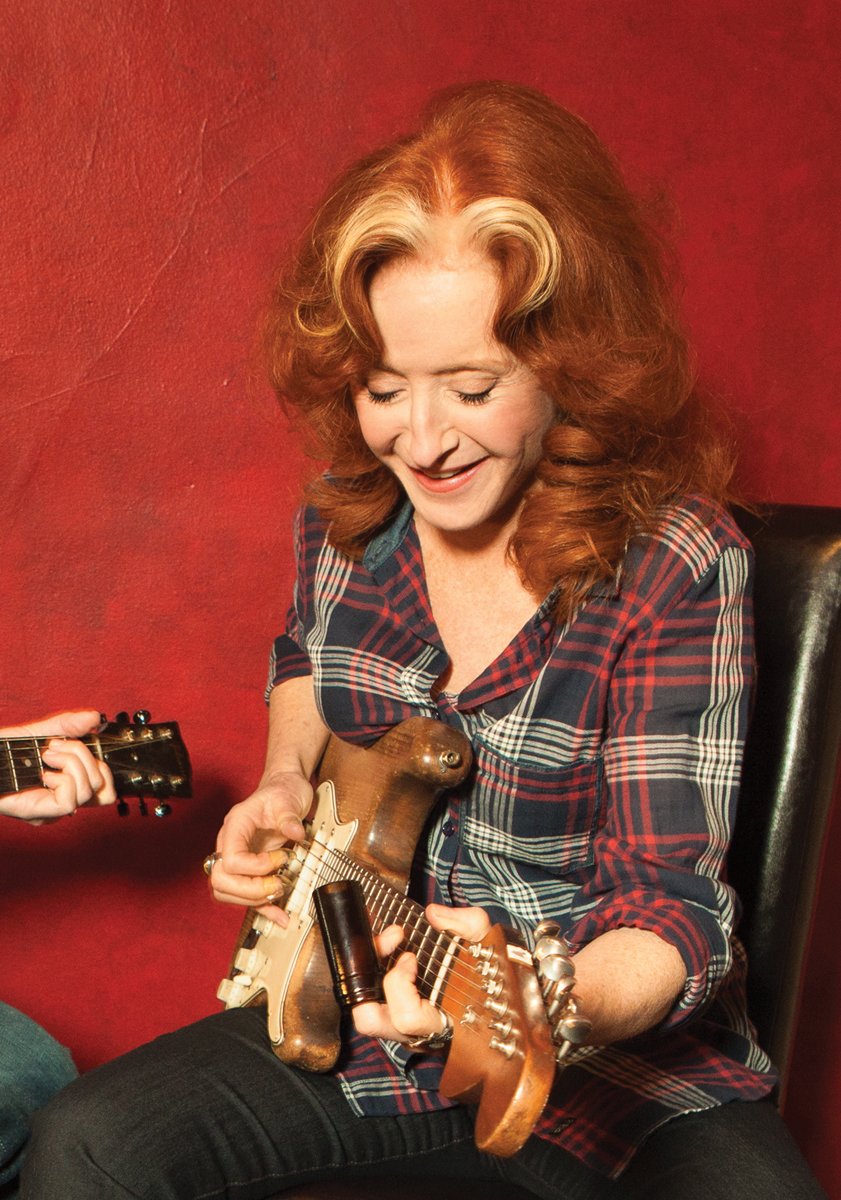












 Visitors Today : 61
Visitors Today : 61 Now Online : 0
Now Online : 0



